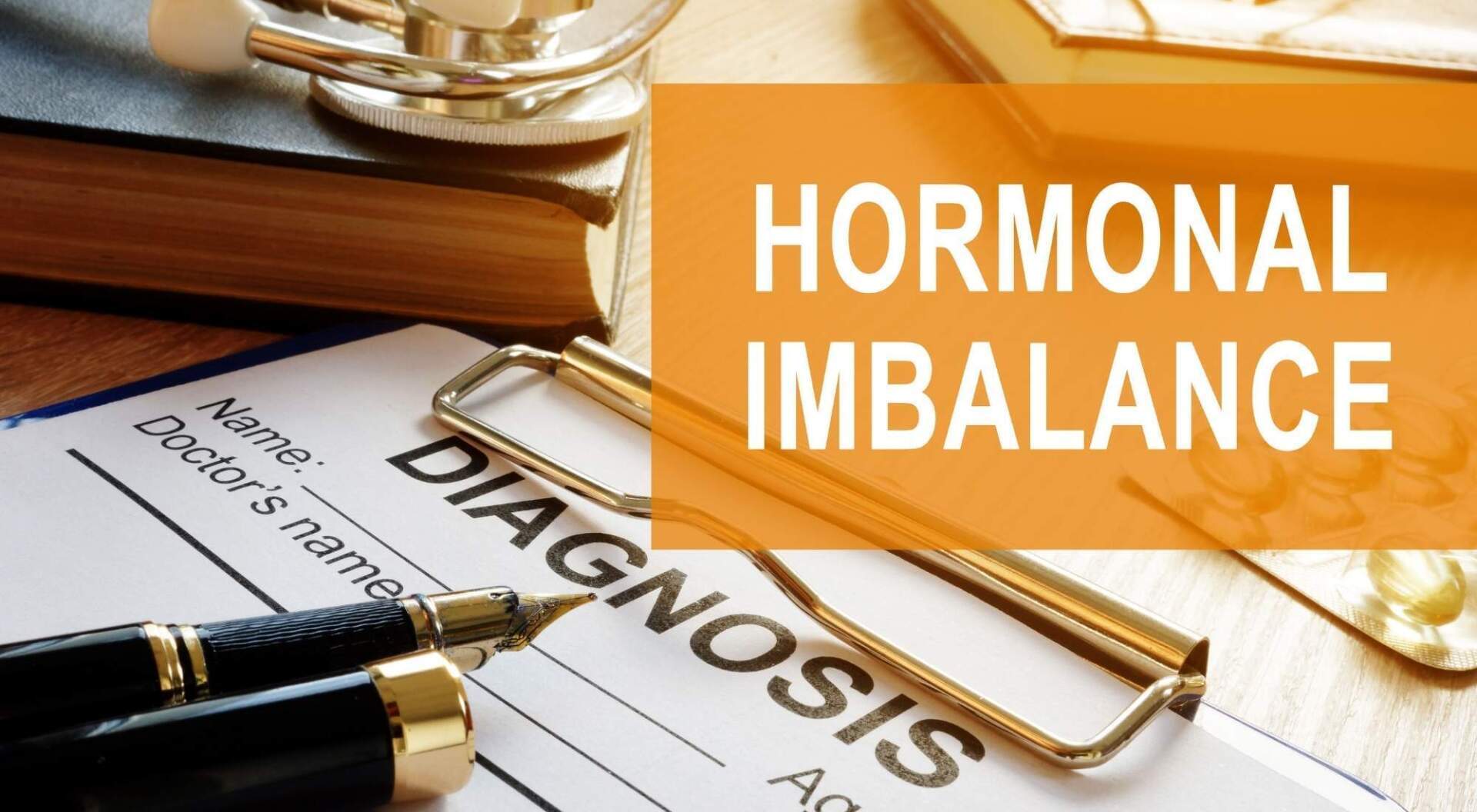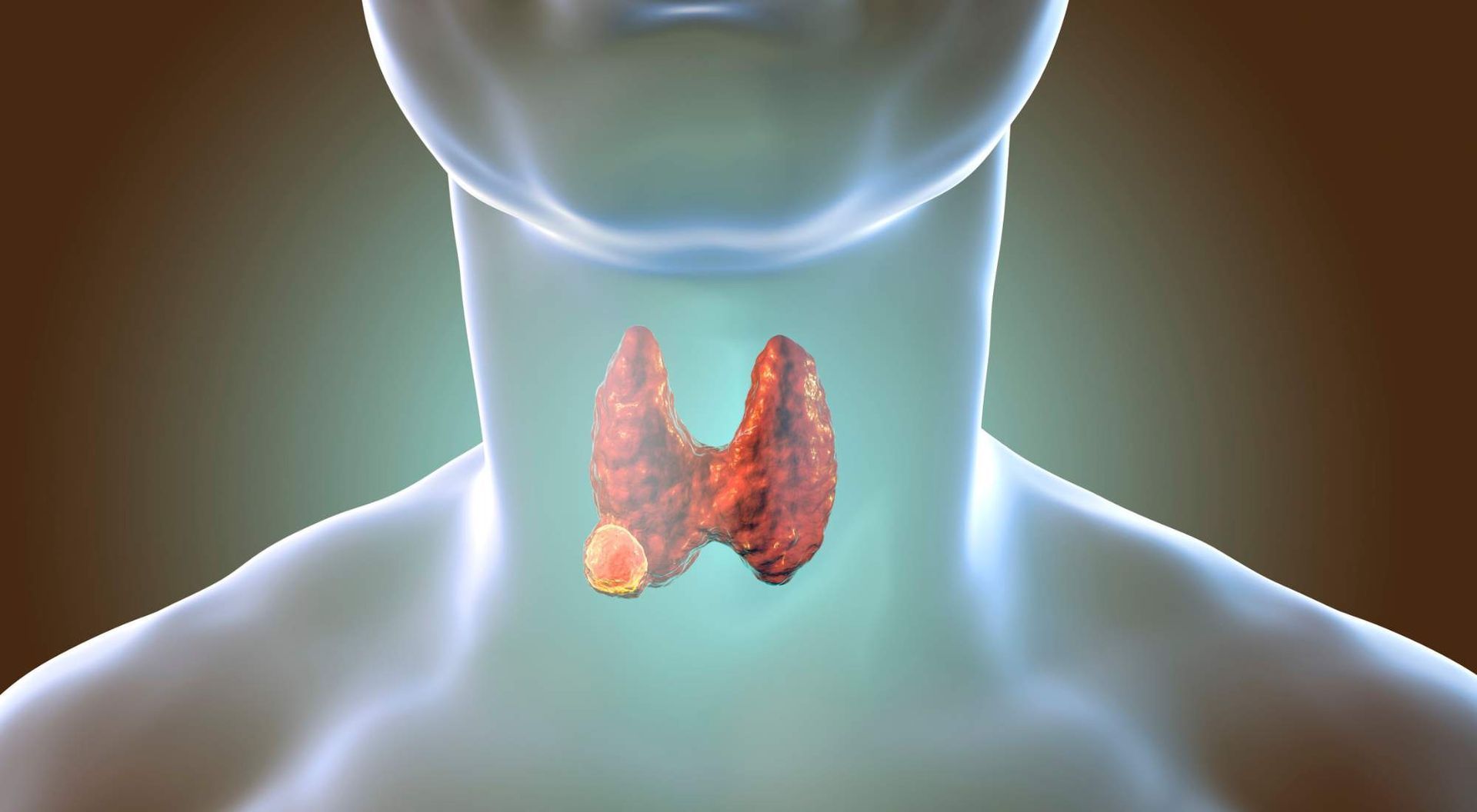Can Hormone Imbalance Cause Weight Gain? A Close-Up Look at Hormones and Weight
"The content below is not intended to be a substitute for professional medical advice, diagnosis, or treatment. Always seek the advice of your physician or other qualified health provider with any questions you may have regarding a medical condition."
Your body is constantly changing, but as of recently, you’ve noticed an irregular amount of weight gain.
You’ve tried to exercise it off. You’ve started to look at your diet — but your weight isn’t decreasing. Now you’re looking for answers and wondering,
“Is a hormone imbalance causing weight gain? What can I do to find out?”
This guide has the answers you’re searching for. Keep reading to get a close-up look at how your hormones affect your weight and what you can do to overcome the problem.
Table of Contents
Does Hormone Imbalance Cause Weight Gain?
Hormones control a variety of different functions of your body, including …
- Stress levels
- Mood
- Sleep
- Reproduction
… and you guessed it, even your weight.
Your hormones play an integral part in how your body uses energy and regulates your metabolism. So, when the slightest change in your hormone levels occurs, it can wreak havoc on your body’s ability to regulate your weight.
Now, this doesn’t mean the few pounds you may have picked up over the holidays or from lifestyle changes — typically, significant weight fluctuations are caused by hormonal changes or imbalances.
Hormonal imbalances can affect how much you eat, what you’re craving, and can even tell your body to store more (or less) fat throughout your body.
Hormone Imbalance and Weight Gain: What Does the Research Say?
How do your hormones influence weight gain?
We’ve done the research and found that many studies show the correlation between weight gain and several different hormonal conditions or issues, including:
- Thyroid hormone deficiency
- Estrogen dominance
- Insulin resistance
- Androgen imbalance
- PCOS
- Metabolic Syndrome
- Excess cortisol
- Excess Prolactin
- And more
We’ll touch on some of the most common causes of weight gain related to a hormonal imbalance further on. For now, let’s look at some signs you should be on the lookout for if you are concerned a hormone imbalance is causing your weight gain.
What Are the Signs That a Hormone Imbalance Could Be Causing Weight Gain?
How do you know if your hormones are causing weight gain? You’ll want to look for signs of a hormonal imbalance.
Aside from unbalanced hormones causing weight gain, you may experience the following symptoms of hormone imbalance:
- Skin problems — Chronic acne, specifically as an adult, can signify that you may have higher than normal levels of the androgen hormone and low levels of estrogen or progesterone. Dry, flaky, itchy skin, may be a sign of a thyroid problem or a sign of menopause
- Galactorrhea — Women may experience a milky discharge from their nipples. Studies have found an association between galactorrhea and thyroid levels
- Chronically elevated insulin levels — Insulin is the body’s number one fat-storage hormone. If insulin is being produced more than necessary, it may be telling your body to hold on to more fat instead of using the food you intake as a source of energy
But the signs don’t stop there.
If your hormones are out of balance, you may also be dealing with:
- Excessive sweating
- Decreased libido
- Hair loss
- Fatigue
- Digestive issues
- Constipation
- Infertility;
- And more
How Is Weight Gain Due to Hormone Imbalance Diagnosed?
If you are dealing with any of the symptoms mentioned above, it is important you reach out to a healthcare professional who can help you get to the bottom of the symptoms.
Your primary care physician may refer you for labs to draw blood or for a urinalysis to examine which hormone levels may be imbalanced in your body.
Or you could test your body’s neurological reflexes and acupressure points to determine any weaknesses in your body through Nutrition Response Testing.
Nutrition Response Testing is an easy, painless way to determine if a hormone imbalance is causing weight gain — or if it may be something else.
Now that we know more about whether hormones are to blame for your weight gain and what to look for, let’s look at some examples of what might be causing it.
5 Causes of Hormone Imbalance Weight Gain
#1: Hypothyroidism
Low levels of thyroid hormones are to blame for conditions such as hypothyroidism and Hashimoto's syndrome.
Hypothyroidism occurs due to the lack of thyroid hormones in your body. At the same time, Hashimoto’s is an autoimmune disease that causes similar symptoms to hypothyroidism, the difference being that Hashimotos can cause damage to your immune system.
Symptoms that may indicate hypothyroidism is to blame for increased weight gain are:
- Increased sensitivity to cold
- Hoarseness
- Weight gain
- Dry skin
- Constipation
- Muscle weakness
- Elevated cholesterol levels
- Slowed heart rate; and
- Thinning hair
But how does hypothyroidism affect your weight?
Your thyroid glands help with two things:
- Control your metabolism
- Regulate your appetite
So, when thyroid levels are low, a few things may happen …
- Your metabolism starts to slow, and you burn less energy
- You’re less likely to burn fat; and
- You become more fatigued, resulting in less physical activity
… resulting in weight gain.
#2: Menopause
You’re getting older, and although you’re getting wiser, you’re noticing you’re unable to shed those extra pounds as easily as you once did.
One reason?
A hormonal shift happens during
menopause.
During this transition,
your estrogen levels start to decline, slowing down your metabolism and telling your body to continue to store that unnecessary fat — making it harder to lose weight.
#3: Endometriosis
Many health experts are still studying the connection between weight gain and endometriosis, but there are several theories on why endometriosis is to blame for weight gain — one involving estrogen levels.
Endometriosis is estrogen-dependent, meaning that as your estrogen levels increase, so do the symptoms of endo.
So, when your body produces too much estrogen, it begins to outweigh the progesterone levels in your body —
this estrogen dominance may be what’s to blame for your increase in weight.
#4: PCOS
You may have heard the havoc that PCOS may wreak on your body — but many women who experience PCOS may not realize that the weight they’ve been carrying around could also be due to the disorder.
PCOS makes it a much more challenging task for the body to properly use insulin — a hormone that helps convert starches and sugars into energy.
This inability to use insulin is known as insulin resistance, which may cause insulin and glucose (sugar) to build up in your bloodstream. The increase leads to unnecessary production of the male hormones known as androgens.
As androgen levels increase, you may notice your weight, especially around your abdomen, is increasing, too.
#5: High Cortisol
If you’ve ever been seriously stressed — blessed are those that haven’t been — you know that it not only affects how you feel mentally, but it can take a toll on you physically, too.
Now, if you’re constantly stressed, several events happen in your brain that can trigger your body to hold onto weight.
It goes a little something like this:
When your brain, specifically the amygdala, senses danger — aka stress, in this case — it signals another section of your brain, called the hypothalamus, to respond with a fight-or-flight response.
This fight-or-flight response is what tells your adrenal glands to release two hormones, cortisol, and adrenaline, to cope with the stressful event. Although the adrenaline may not affect your weight, simply how you react to stress, the cortisol may be the culprit.
Heightened cortisol levels are often linked to overeating. But why?
If your brain thinks you're in danger — remember, your brain processes stress, especially chronic stress, as danger — it’s going to attempt to keep you safe by maintaining fat and calories to fight off any threats.
As these higher levels of cortisol make their way through your bloodstream, your appetite increases, causing your body to resist insulin and slow down your metabolism.
How Do I Balance My Hormones to Lose Weight?
Figuring out how to balance your hormones to lose weight starts by determining the cause — which hormones are sending the wrong messages throughout your body.
Although treatments will vary based on the hormones and the cause, we’re breaking down three of the most common treatment options to balance your hormones to lose weight.
#1: Medication
There are a large variety of medications doctors prescribe to help balance your hormones and potentially help shed the extra weight, including:
- Hormonal birth control
- Hormone replacement medications
- Anti-androgen medications
- Testosterone medications (typically for males)
Two commonly prescribed medicines for hormone imbalances are:
- Metformin
- Levothyroxine
#2: Dietary Changes
Dietary changes can make a huge difference in balancing your hormones to lose weight and feel better.
The number one question you should be asking yourself when looking at your diet when experiencing hormonal weight gain is,
“Am I eating the right amount of calories for my body?”
And no. We don’t mean looking for low-calorie meals and substitutes.
We mean, are you providing your body with enough energy sources? Maybe you’re providing too much?
Eating too many — or too few — calories for your body can easily result in hormonal imbalance and weight gain.
Aside from ensuring that you are eating the proper amount of calories, some of the most commonly recommended dietary changes to help balance your hormones are:
- Avoid foods containing soy
- Cut back on sugary foods
- Eat LOTS of leafy greens
- Eat whole grain, fibrous carbs
- Amp up the number of cruciferous vegetables you’re eating
- Eat good fats — avocado, nut butters, olive oil
- Add magnesium-rich foods to your diet
#3: Nutritional Supplements
In addition to dietary changes, one of the easiest ways to regulate your hormones is by taking dietary supplements.
Natural supplements can have a large — and beneficial — impact on restoring your hormone levels, for example:
- Myo-inositol is commonly recommended for PCOS sufferers
- Black Cohosh for women experiencing weight gain due to menopause
- Vitamins D3, K2, and zinc may help regulate hormonal weight gain by metabolizing the body’s blood sugars
Please note that to ensure you are helping and not hurting your body more, nutritional supplements should be discussed with your medical care team, like Dr. Sergi at HealthierU, before starting a regime.
Nutrition Response Testing at HealthierU Can Help Get to the Bottom of Hormone Imbalance Weight Gain
Weight gain due to a hormonal imbalance is frustrating — but it doesn’t have to be tolerated.
Start getting to the root of the cause and establishing a thorough plan to get you back to you. Dr. Sergi, at HealthierU, strives to do so through a non-invasive procedure known as Nutrition Response Testing.
Dr. Sergi starts with a complete physical exam to determine what your specific needs are — if you’re dealing with a hormonal imbalance, which hormones are causing your weight gain, etc. — from there, she’ll develop an individualized plan to help you overcome hormonal weight gain.
Contact us today to learn more about how HealthierU can help you determine if a hormonal imbalance is causing your weight gain.






